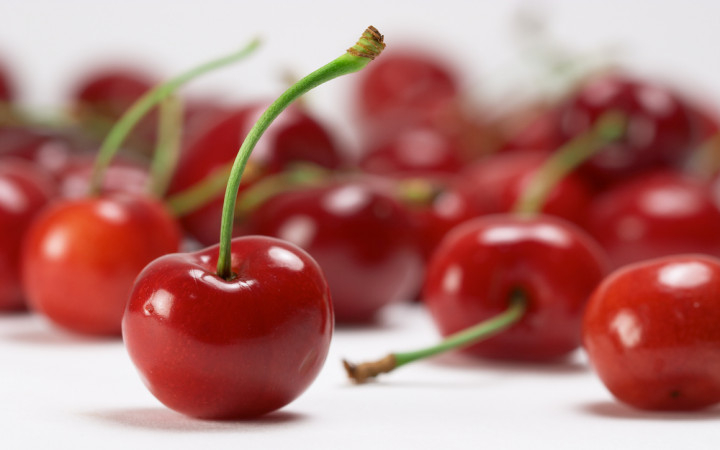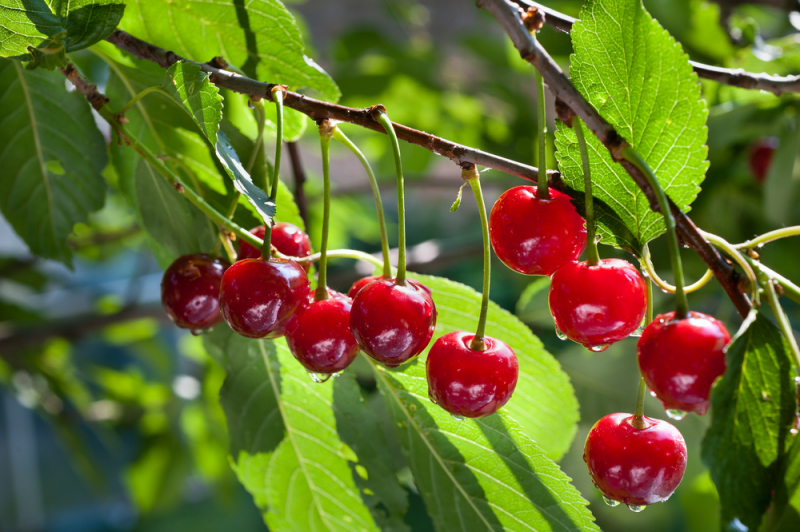Cherry
A cherry is the fruit of many plants of the genus Prunus and is a fleshy drupe (stone fruit). Cherry trees, like the majority of temperate-latitude trees, need a specific number of chilling hours each year to break dormancy, bloom and produce fruit. The variety determines how long the food must cool. None of the trees in the genus Prunus can grow in tropical regions due to this need for cold weather. Cherries may be grown in most temperate climates and have a brief growing season.
Raw sweet cherries are 82% water, 16% carbohydrates, 1% protein, and negligible in fat. The cherry kernels contain amygdalin, a substance that, when consumed, causes the release of the poisonous substance hydrogen cyanide. They can be accessed by biting or cracking the hard-shelled cherry pits. Each cherry has a different amount of amygdalin, thus symptoms wouldn't appear until you ate numerous crushed pits (3-4 of the Morello variety or 7-9 of the red or black varieties). Normally, swallowing the whole of the pit has no negative effects. According to an experiment on the cyanide content of cherries, a typical cherry pit has 0.004 mg of cyanide, which is not a lethal dose for humans but should still be avoided because different cherry varieties may have higher cyanide content levels.












